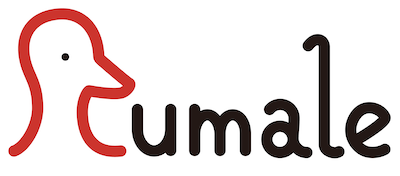https://github.com/yoshoku/rumale
Rumale is a machine learning library in Ruby
https://github.com/yoshoku/rumale
artificial-intelligence data-analysis data-science machine-learning ml ruby rubyml
Last synced: 10 months ago
JSON representation
Rumale is a machine learning library in Ruby
- Host: GitHub
- URL: https://github.com/yoshoku/rumale
- Owner: yoshoku
- License: bsd-3-clause
- Created: 2017-09-30T13:24:56.000Z (over 8 years ago)
- Default Branch: main
- Last Pushed: 2025-01-03T00:37:00.000Z (about 1 year ago)
- Last Synced: 2025-04-29T18:17:31.284Z (10 months ago)
- Topics: artificial-intelligence, data-analysis, data-science, machine-learning, ml, ruby, rubyml
- Language: Ruby
- Homepage: https://rubygems.org/gems/rumale
- Size: 1.67 MB
- Stars: 842
- Watchers: 25
- Forks: 32
- Open Issues: 0
-
Metadata Files:
- Readme: README.md
- Changelog: CHANGELOG.md
- License: LICENSE.txt
- Code of conduct: CODE_OF_CONDUCT.md
Awesome Lists containing this project
- awesome-machine-learning - rumale - Rumale is a machine learning library in Ruby (Ruby / General-Purpose Machine Learning)
- awesome-machine-learning - rumale - Rumale is a machine learning library in Ruby (Ruby / General-Purpose Machine Learning)
- fucking-awesome-machine-learning - rumale - Rumale is a machine learning library in Ruby (Ruby / General-Purpose Machine Learning)
- awesome-machine-learning - rumale - Rumale is a machine learning library in Ruby (Ruby / General-Purpose Machine Learning)
- awesome-ruby - rumale - A machine learning library with interfaces similar to Scikit-Learn. (Machine Learning)
- fucking-awesome-ruby - rumale - A machine learning library with interfaces similar to Scikit-Learn. (Machine Learning)
- machine-learning-with-ruby - rumale - (Machine Learning Libraries / Frameworks)
- awesome-machine-learning - rumale - Rumale is a machine learning library in Ruby (Ruby / General-Purpose Machine Learning)
- awesome-ruby - rumale - A machine learninig library with interfaces similar to Scikit-Learn. (Machine Learning)
README
# Rumale

[](https://github.com/yoshoku/rumale/actions/workflows/main.yml)
[](https://badge.fury.io/rb/rumale)
[](https://github.com/yoshoku/rumale/blob/main/LICENSE.txt)
[](https://yoshoku.github.io/rumale/doc/)
[](https://doi.org/10.5281/zenodo.14590520)
Rumale (**Ru**by **ma**chine **le**arning) is a machine learning library in Ruby.
Rumale provides machine learning algorithms with interfaces similar to Scikit-Learn in Python.
Rumale supports Support Vector Machine,
Logistic Regression, Ridge, Lasso,
Multi-layer Perceptron,
Naive Bayes, Decision Tree, Gradient Tree Boosting, Random Forest,
K-Means, Gaussian Mixture Model, DBSCAN, Spectral Clustering,
Mutidimensional Scaling, t-SNE,
Fisher Discriminant Analysis, Neighbourhood Component Analysis,
Principal Component Analysis, Non-negative Matrix Factorization,
and many other algorithms.
## Installation
Add this line to your application's Gemfile:
```ruby
gem 'rumale'
```
And then execute:
$ bundle
Or install it yourself as:
$ gem install rumale
## Documentation
- [Rumale API Documentation](https://yoshoku.github.io/rumale/doc/)
## Usage
### Example 1. Pendigits dataset classification
Rumale provides function loading libsvm format dataset file.
We start by downloading the pendigits dataset from LIBSVM Data web site.
```bash
$ wget https://www.csie.ntu.edu.tw/~cjlin/libsvmtools/datasets/multiclass/pendigits
$ wget https://www.csie.ntu.edu.tw/~cjlin/libsvmtools/datasets/multiclass/pendigits.t
```
Training of the classifier with Linear SVM and RBF kernel feature map is the following code.
```ruby
require 'rumale'
# Load the training dataset.
samples, labels = Rumale::Dataset.load_libsvm_file('pendigits')
# Map training data to RBF kernel feature space.
transformer = Rumale::KernelApproximation::RBF.new(gamma: 0.0001, n_components: 1024, random_seed: 1)
transformed = transformer.fit_transform(samples)
# Train linear SVM classifier.
classifier = Rumale::LinearModel::SVC.new(reg_param: 0.0001)
classifier.fit(transformed, labels)
# Save the model.
File.open('transformer.dat', 'wb') { |f| f.write(Marshal.dump(transformer)) }
File.open('classifier.dat', 'wb') { |f| f.write(Marshal.dump(classifier)) }
```
Classifying testing data with the trained classifier is the following code.
```ruby
require 'rumale'
# Load the testing dataset.
samples, labels = Rumale::Dataset.load_libsvm_file('pendigits.t')
# Load the model.
transformer = Marshal.load(File.binread('transformer.dat'))
classifier = Marshal.load(File.binread('classifier.dat'))
# Map testing data to RBF kernel feature space.
transformed = transformer.transform(samples)
# Classify the testing data and evaluate prediction results.
puts("Accuracy: %.1f%%" % (100.0 * classifier.score(transformed, labels)))
# Other evaluating approach
# results = classifier.predict(transformed)
# evaluator = Rumale::EvaluationMeasure::Accuracy.new
# puts("Accuracy: %.1f%%" % (100.0 * evaluator.score(results, labels)))
```
Execution of the above scripts result in the following.
```bash
$ ruby train.rb
$ ruby test.rb
Accuracy: 98.5%
```
### Example 2. Cross-validation
```ruby
require 'rumale'
# Load dataset.
samples, labels = Rumale::Dataset.load_libsvm_file('pendigits')
# Define the estimator to be evaluated.
lr = Rumale::LinearModel::LogisticRegression.new
# Define the evaluation measure, splitting strategy, and cross validation.
ev = Rumale::EvaluationMeasure::Accuracy.new
kf = Rumale::ModelSelection::StratifiedKFold.new(n_splits: 5, shuffle: true, random_seed: 1)
cv = Rumale::ModelSelection::CrossValidation.new(estimator: lr, splitter: kf, evaluator: ev)
# Perform 5-cross validation.
report = cv.perform(samples, labels)
# Output result.
mean_accuracy = report[:test_score].sum / kf.n_splits
puts "5-CV mean accuracy: %.1f%%" % (100.0 * mean_accuracy)
```
Execution of the above scripts result in the following.
```bash
$ ruby cross_validation.rb
5-CV mean accuracy: 95.5%
```
## Speedup
### Numo::Linalg
Rumale uses [Numo::NArray](https://github.com/ruby-numo/numo-narray) for typed arrays.
Loading the [Numo::Linalg](https://github.com/ruby-numo/numo-linalg) allows to perform matrix and vector product of Numo::NArray
using BLAS libraries.
Some machine learning algorithms frequently compute matrix and vector products,
the execution speed of such algorithms can be expected to be accelerated.
Install Numo::Linalg gem.
```bash
$ gem install numo-linalg
```
In ruby script, just load Numo::Linalg along with Rumale.
```ruby
require 'numo/linalg/autoloader'
require 'rumale'
```
Numo::Linalg allows [user selection of background libraries for BLAS/LAPACK](https://github.com/ruby-numo/numo-linalg/blob/master/doc/select-backend.md).
Instead of fixing the background library,
[Numo::OpenBLAS](https://github.com/yoshoku/numo-openblas) and [Numo::BLIS](https://github.com/yoshoku/numo-blis)
are available to simplify installation.
### Numo::TinyLinalg
[Numo::TinyLinalg](https://github.com/yoshoku/numo-tiny_linalg) is a subset library from Numo::Linalg consisting only of methods used in machine learning algorithms.
Numo::TinyLinalg only supports OpenBLAS as a backend library for BLAS and LAPACK.
If the OpenBLAS library is not found during installation, Numo::TinyLinalg downloads and builds that.
```bash
$ gem install numo-tiny_linalg
```
Load Numo::TinyLinalg instead of Numo::Linalg.
```ruby
require 'numo/tiny_linalg'
Numo::Linalg = Numo::TinyLinalg
require 'rumale'
```
### Parallel
Several estimators in Rumale support parallel processing.
Parallel processing in Rumale is realized by [Parallel](https://github.com/grosser/parallel) gem,
so install and load it.
```bash
$ gem install parallel
```
```ruby
require 'parallel'
require 'rumale'
```
Estimators that support parallel processing have n_jobs parameter.
When -1 is given to n_jobs parameter, all processors are used.
```ruby
estimator = Rumale::Ensemble::RandomForestClassifier.new(n_jobs: -1, random_seed: 1)
```
## Related Projects
- [Rumale::SVM](https://github.com/yoshoku/rumale-svm) provides support vector machine algorithms in LIBSVM and LIBLINEAR with Rumale interface.
- [Rumale::Torch](https://github.com/yoshoku/rumale-torch) provides the learning and inference by the neural network defined in torch.rb with Rumale interface.
## License
The gem is available as open source under the terms of the [BSD-3-Clause License](https://opensource.org/licenses/BSD-3-Clause).